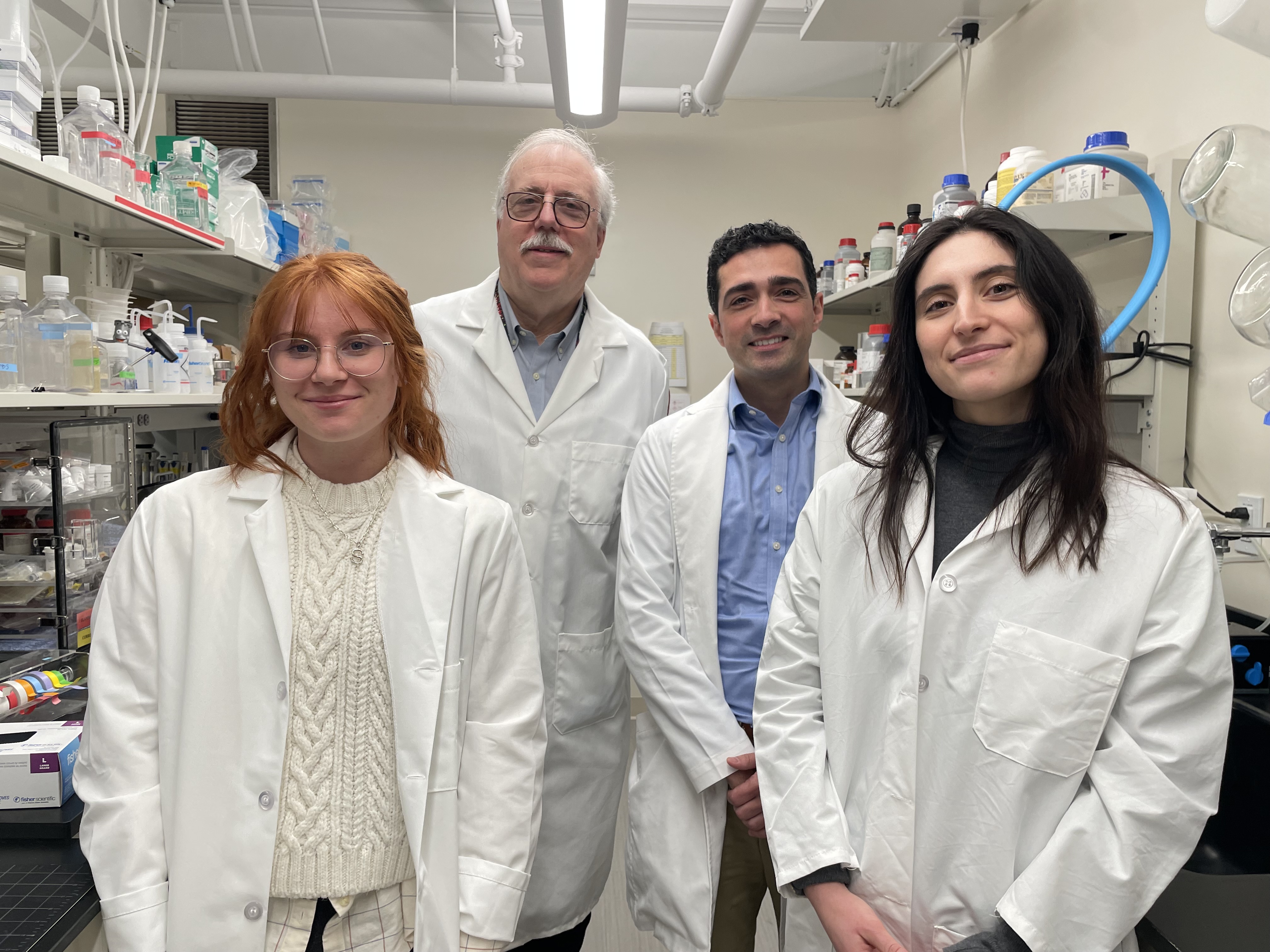
Advancing Biomedical Research Abroad Through the OVERWORLD Program
NYMC partners with the University of Parma to Offer Research Opportunities to Students Abroad

New York Medical College (NYMC) welcomes two new students from the University of Parma in the setting of an international student exchange program. Sylvia De Napoli, left, and Benedetta Ricchi, right, from the OVERWORLD Program will be conducting research in biomedical sciences and neurobiology in the labs of Christopher S. Leonard, Ph.D., center left, interim chair of the Department of Physiology and professor of physiology, and Malik Bisserier, Ph.D., center right, assistant professor of cell biology and anatomy.
Through the OVERWORLD Program, students from the University of Parma in Italy can spend between three to 12 months at participating non-European universities, like NYMC, to conduct research for their theses. The collaboration started in 2019 with the help of Marcello Rota, Ph.D., associate professor of physiology and alumnus from the University of Parma, who knows firsthand the benefits of studying abroad.
“This is an important experience for students, allowing them to participate in research activities in a totally new environment,” he said. “I came from Italy with a similar program and decided to remain because I became passionate about research and found myself in the position to contribute to scientific advancement.”
Ricchi, a master’s student studying translational biomedical sciences, has been investigating the role of epigenetic-induced endothelial dysfunction in pulmonary arterial hypertension under the mentorship of Dr. Bisserier. Her work aims to explore how epigenetic modifications influence gene expression and affect the development and severity of pulmonary arterial hypertension, a rare lung disease.
“During my time in the lab, I have learned various molecular biology techniques and cell culture protocols, which I hope will assist me in my future research,” said Ricchi.
Ricchi's research topic evokes fond memories for Dr. Bisserier, who interned abroad at the Quebec Heart and Lung Institute during his master’s studies, working on the same topic. “It was an amazing experience that helped me grow both personally and professionally,” said Dr. Bisserier, who has been witnessing the same experience as a mentor. “It sparked the research I am still working on today at NYMC. "It has been a great opportunity to expand my horizons and contribute to someone else’s learning journey.”
De Napoli, who is pursuing a master’s degree in neurobiology, highlights the numerous advantages of studying at NYMC. She emphasized the value of gaining neuroscience techniques, which she believed would be challenging to acquire in Italy due to differences in university structures and limited access to laboratories, particularly those utilizing animal models, exacerbated by the ongoing recovery from the pandemic. Her thesis investigates how brain serotonin-releasing neurons participate in brain changes that occur following exposure to opiates.
“I think it’s important to explore new environments and opportunities and get to know new people, different academic realities, and extraordinary minds to widen one’s perspective,” she said.
While students in the program actively seek mentorship from NYMC faculty, Dr. Leonard highlights that collaboration with fellow students and researchers plays a pivotal role, constituting a key component of the program. He emphasized the leadership and support from Elizabeth A. Berry, Ph.D. ’23, a post-doctoral researcher, and Peter Shue, a student in the Graduate School of Biomedical Sciences master’s program, on guiding De Napoli throughout her time at the College.
The College has welcomed six students since the partnership began and continues to incorporate opportunities to foster international collaboration and academic exchange to enrich the research community and future researchers.
“We have broadened their scientific horizons by introducing them to new areas of experimental inquiry, new laboratory skills and approaches, and helped them engage with primary research literature in a new critical way,” said Dr. Leonard, who finds the program equally beneficial for the mentors as it is the students.

